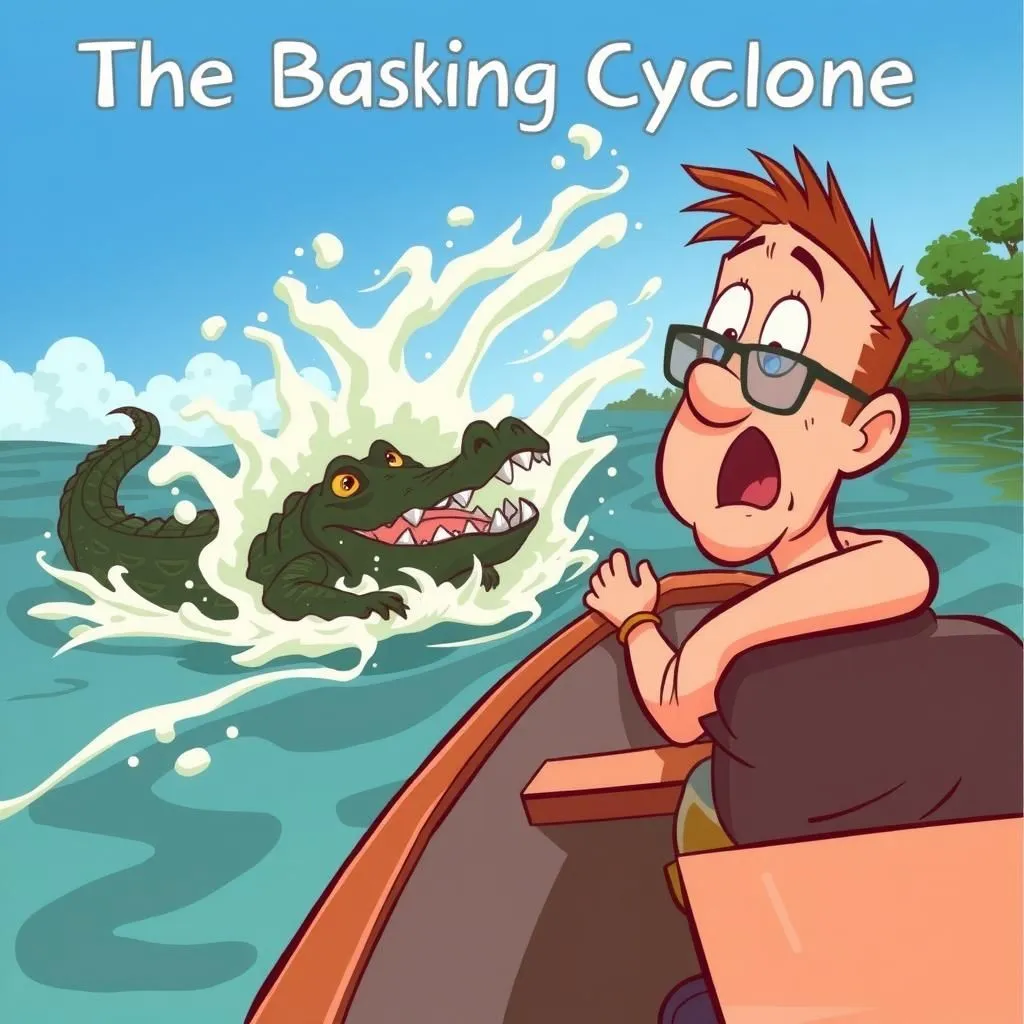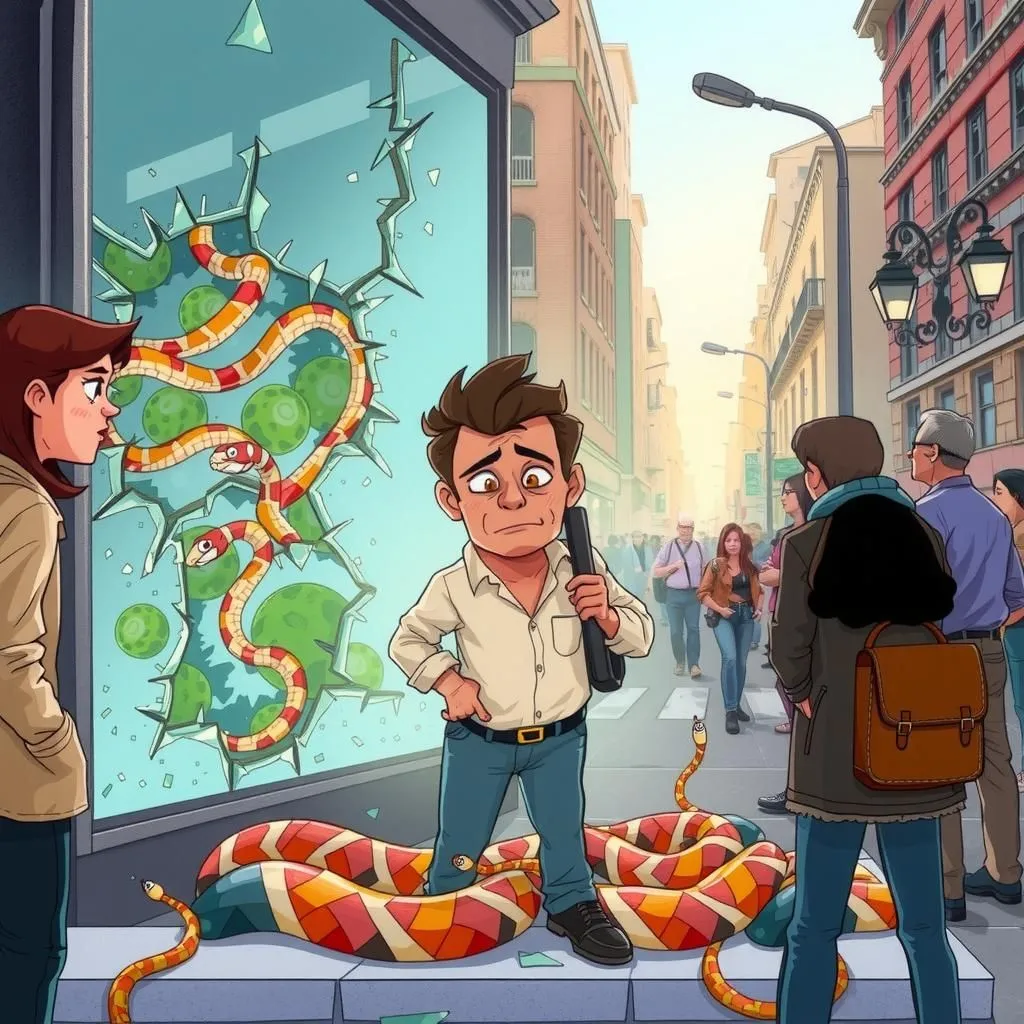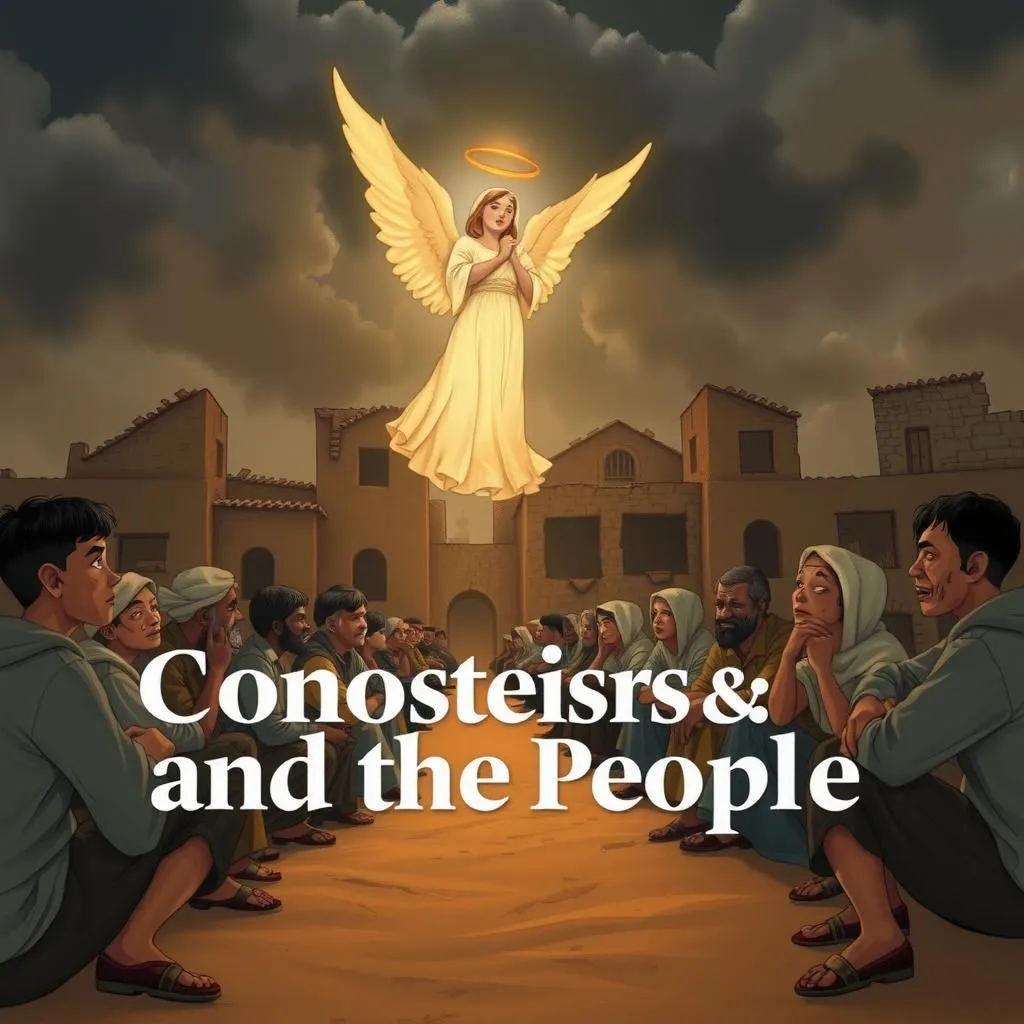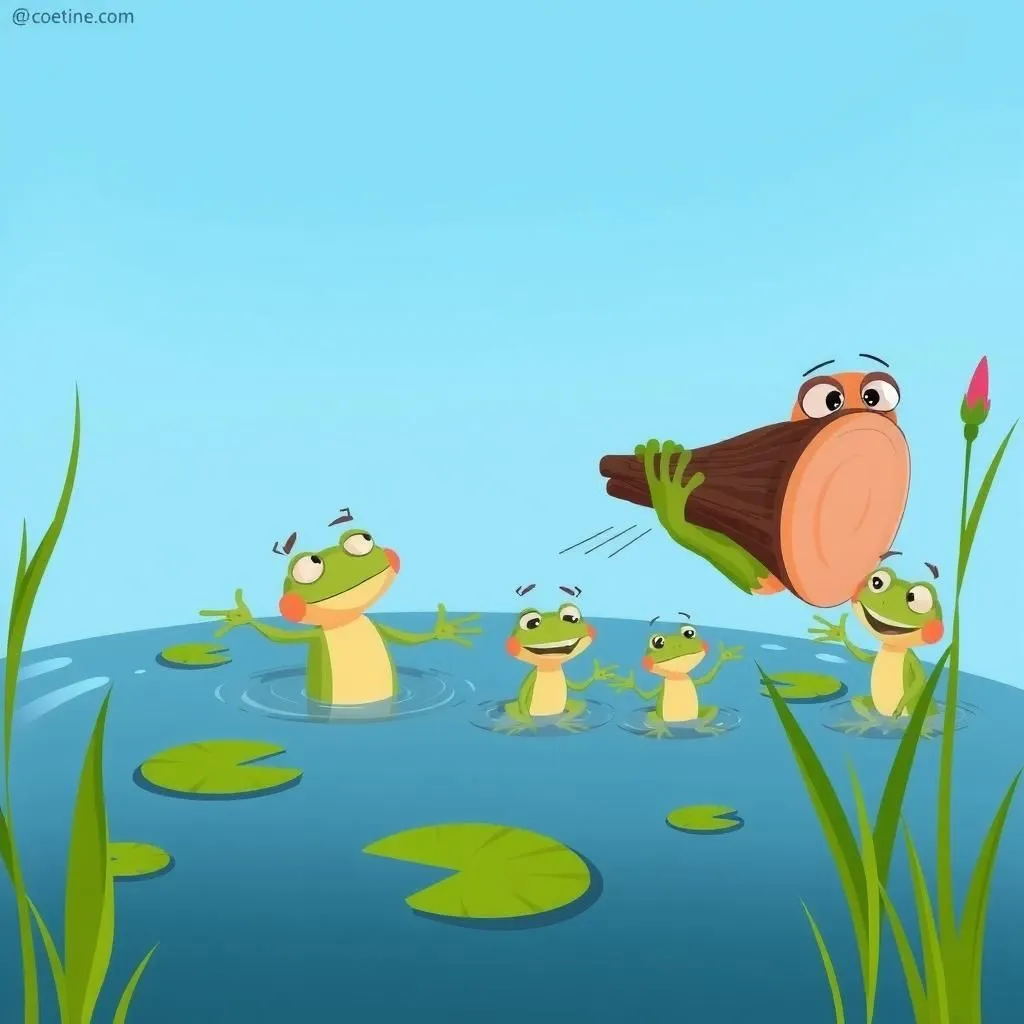
The Basking Cyclone
In "The Basking Cyclone," a man mistaking a sleeping alligator for a log humorously contemplates using it for shingles for his cabin. When he pokes the alligator, it awakens and splashes into the water, leaving the man astonished and exclaiming about the chaos as if a cyclone had swept away his roof. This entertaining moral story serves as a delightful short bedtime tale for young readers, imparting lessons on perception and surprise.


